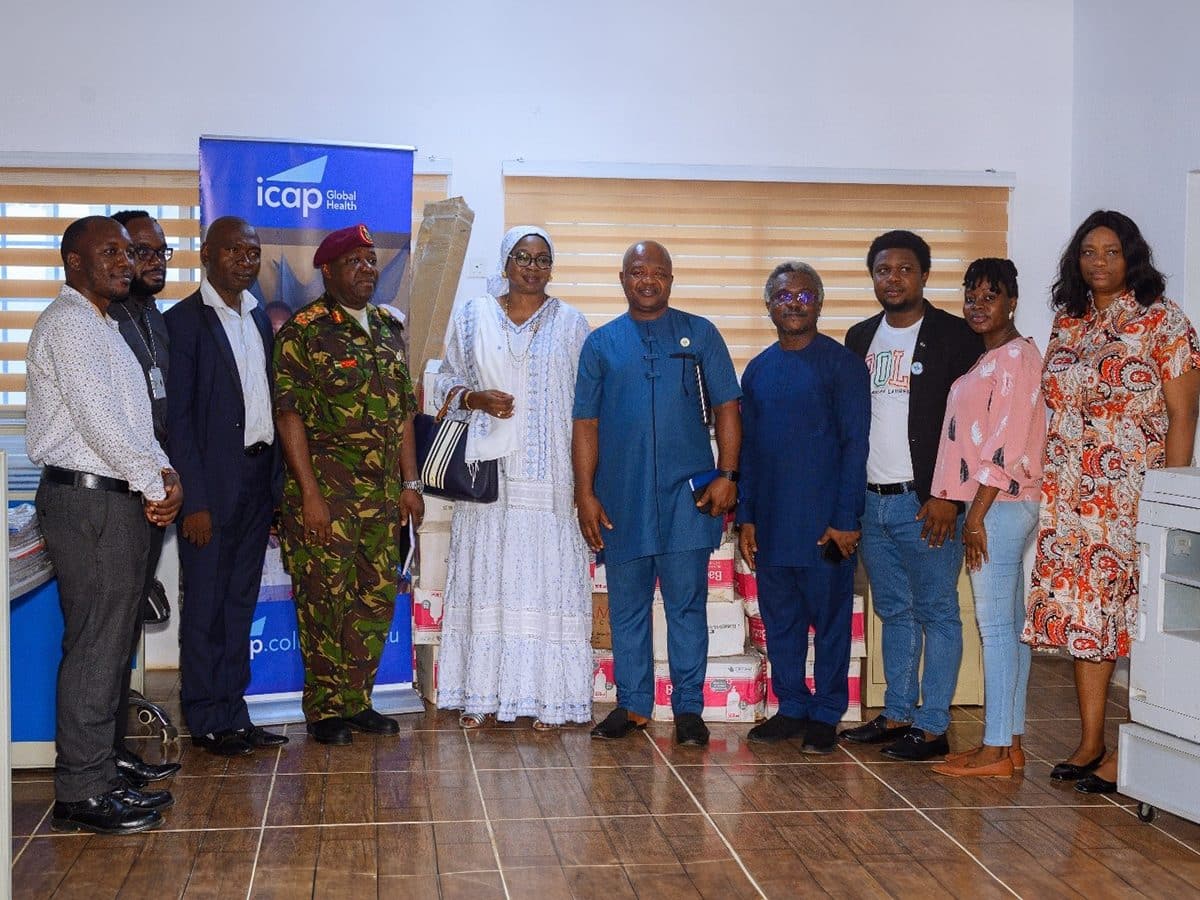For over 8 million Sierra Leoneans, primary health care facilities are the first point of contact in receiving treatment for any illness, including during infectious disease outbreaks. With a resilient spirit forged through past challenges dealing with deadly epidemics like Ebola virus disease (EVD) and, most recently, COVID-19, Sierra Leone is prioritizing epidemic preparedness in primary health care facilities to minimize infections, deaths, and the socio-economic impacts of epidemics and pandemics.
“During the 2014 Ebola virus disease outbreak, a lack of triage facilities, isolation centers, IPC training, and protective equipment, as well as lack of knowledge and misconceptions about Ebola, combined to have devastating effects on the health care workforce in Sierra Leone, including the loss of lives,” said Mame Awa Toure, MD, MSc, country director for ICAP in Sierra Leone. “With improved IPC measures, Sierra Leone can build community trust to mitigate the impact of health threats through early detection and response.”
With lessons learned from EVD and support from Resolve to Save Lives, ICAP has been supporting the government of Sierra Leone through the National Public Health Agency (NPHA) to implement the Epidemic Ready Primary Healthcare (ERPHC) project since August 2023. The NPHA is implementing the two-year project aimed at detecting, notifying, and reducing response times to outbreaks in 80 primary health care facilities across five districts to minimize the impact of infectious diseases.
According to Dr. Toure, “ERPHC is a system that combines clinical services with public health measures to handle epidemics effectively.” ERPHC will focus on health care workers’ safety, support, and well-being through enhanced IPC and integrated disease surveillance and response (IDSR) interventions. ERPHC will also ensure primary health care centers can continue providing essential services during health crises.
Meanwhile, project activities have included providing frontline staff with crucial training and resources to implement strong infection control measures to minimize health care-acquired infections and building capacity for swift identification and tracking of emerging diseases. ICAP and the NPHA are also partnering with health facilities and community leaders to promote awareness, engage communities in disease prevention activities, and encourage participation in disease prevention efforts.
“This partnership is crucial to elevating health outcomes for all Sierra Leoneans,” said Foday Sahr, MBChB, MSc, DSc, FWACP, executive director of the NPHA, during an ICAP visit to NPHA headquarters on February 29 to provide equipment and supplies for day-to-day operations. “Together, we can build a resilient health system capable of tackling any public health challenge,” he said.
So far, the project’s successes include stakeholder mapping with the Ministry of Health (MOH) to introduce the ERPHC project concept to key national, district, and community stakeholders who will champion and facilitate project implementation. ICAP has also supported the MOH to develop criteria for selecting nine priority diseases and conditions, data collection tools, and indicators to inform the implementation and monitoring of ERPHC interventions.
About ICAP
A major global health organization that has been improving public health in countries around the world for two decades, ICAP works to transform the health of populations through innovation, science, and global collaboration. Based at Columbia Mailman School of Public Health, ICAP has projects in more than 40 countries, working side-by-side with ministries of health and local governmental, non-governmental, academic, and community partners to confront some of the world’s greatest health challenges. Through evidence-informed programs, meaningful research, tailored technical assistance, effective training and education programs, and rigorous surveillance to measure and evaluate the impact of public health interventions, ICAP aims to realize a global vision of healthy people, empowered communities, and thriving societies. Online at icap.columbia.edu








